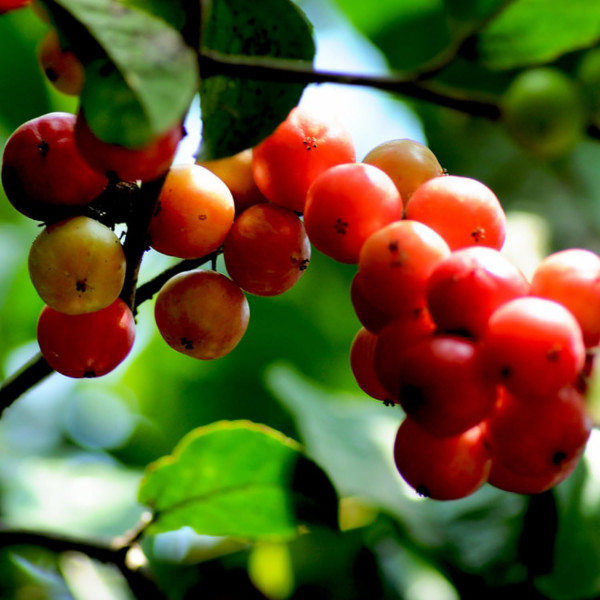Flacourtia jangomas, commonly known as Indian plum, coffee plum, or sweet loobi, is a small to medium-sized tropical tree belonging to the family Salicaceae. It is widely distributed in South and Southeast Asia and cultivated for its edible fruit. Here's an overview:
Description:
- Tree: Grows to about 6–15 meters in height with a spreading canopy.
- Leaves: Simple, alternate, ovate to lanceolate, with a glossy green surface.
- Flowers: Small, pale green to white, and fragrant, appearing in clusters.
- Fruit:
- Small, round to oval, about 2–4 cm in diameter.
- Green when immature, turning reddish-purple to dark brown when ripe.
- The skin is thin, and the pulp is juicy with a sweet and tart flavor.
- Contains 2–6 small seeds.
Uses:
- Culinary:
- The ripe fruits are eaten fresh, made into jams, jellies, or pickles.
- The tart flavor makes it a popular ingredient in chutneys and syrups.
- Medicinal:
- Traditionally used to treat ailments like diarrhea, dysentery, and fever.
- Believed to have antioxidant and antimicrobial properties.
- Wood:
- The wood is hard and used for small-scale construction or fuel.
Cultivation:
- Thrives in tropical and subtropical climates.
- Grows well in sandy, loamy, or clayey soils with good drainage.
- Propagated through seeds or cuttings.

